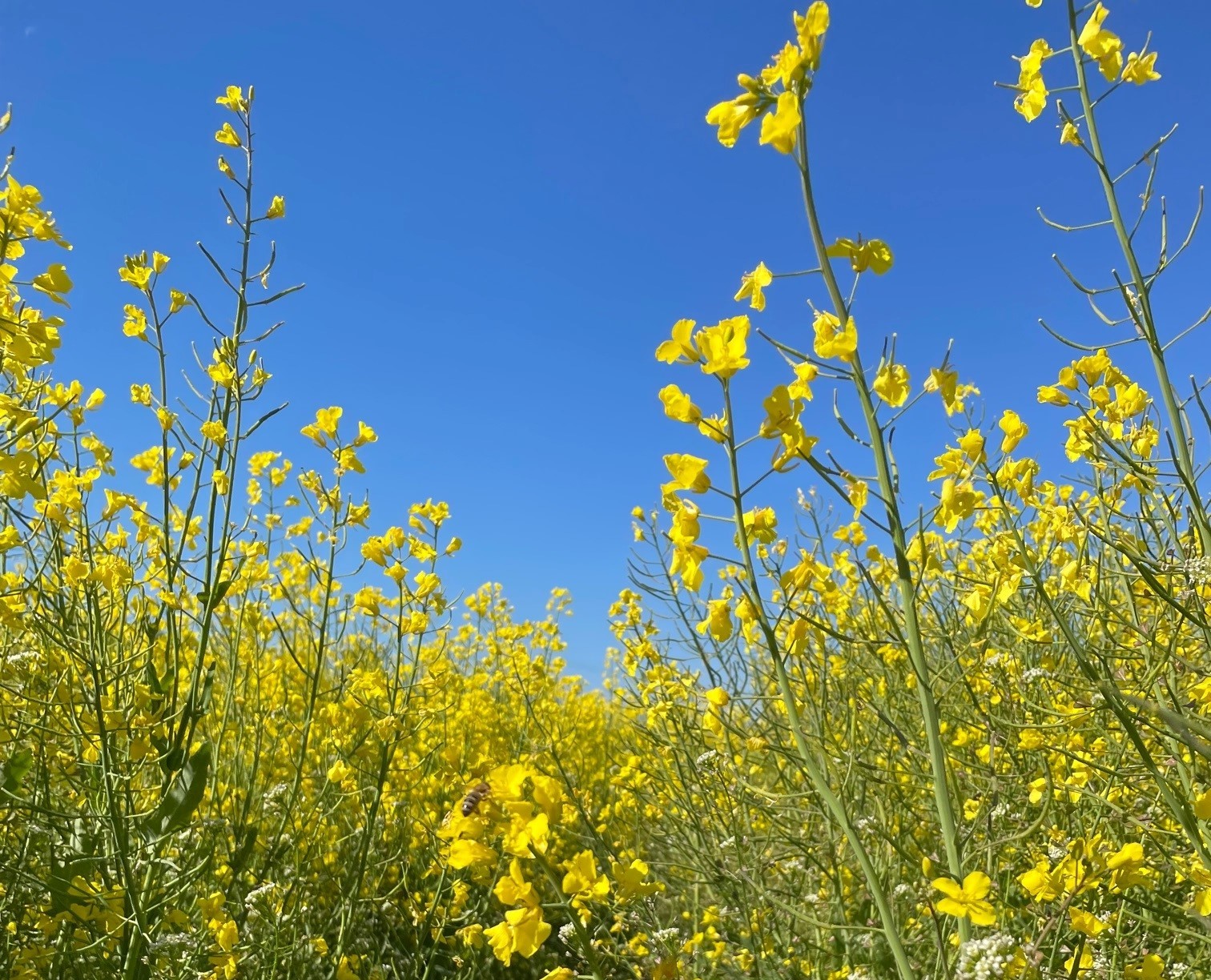More rapeseed and canola cultivation is needed in Finland. The Finnish food industry would like to use significantly more domestic rapeseed and canola, which is why the need to increase cultivation is up to twice the current production volume.
The average yield of autumn and spring rapeseed and canola in Finland is approximately 1,400 kg/ha. There is a large dispersion in yield levels: the best quarter of rapeseed/canola farms can produce up to twice as much as the worst quarter. Rapeseed and canola production is hampered by the challenge of cultivation, as it requires financial, knowledge and time investment. Plant protection of spring oil crops in particular is a resource-intensive part of cultivation, and changes in legislation and the range of plant protection products cause uncertainty in cultivation and its planning. Due to the challenges of plant protection of spring-type rapeseed/canola, farmers have become interested in growing autumn-type rapeseed and canola, which generally have fewer pest problems than spring-type varieties and higher yields. However, the challenge with these plants is the uncertainty of overwintering.
The cultivation security of rapeseed and canola should be increased in order to achieve higher yield levels and to encourage more farmers to cultivate oilseeds. The areas of cultivation that could have the most significant impact on the potential for successful cultivation include alternative plant protection methods, taking care of the soil’s growth condition, variety knowledge and optimisation of nutrient supply. In order to develop these areas, the good practices already in use on farms must be put into wider use, and completely new methods and varieties must be devised and tested.
The main objective of the Increasing the Cultivation Security and Quantity of Rapeseed and Canola (VARPSI) project is to increase the cultivation of oilseeds, cultivation security and yield levels in Finland. The main objective of the project is divided into four sub-objectives, which are also the project’s measures:
- a) Increasing yield levels and cultivated areas and expanding cultivated areas through optimal variety selection.
b) Establishing the development expertise in oilseed cultivation in new areas. - Increasing the wintering and yield security of autumn oilseed crops through the right variety selection.
- Improving plant health and cultivation conditions through new cultivation methods.
- Increasing the professionalism and interest in rapeseed and canola cultivation through diverse information dissemination.
The project is managed and implemented by the Pyhäjärvi Institute Foundation. The sub-implementers are Nylands Svenska Lantbrukssällskap and ProAgria Keskustenliitto.
